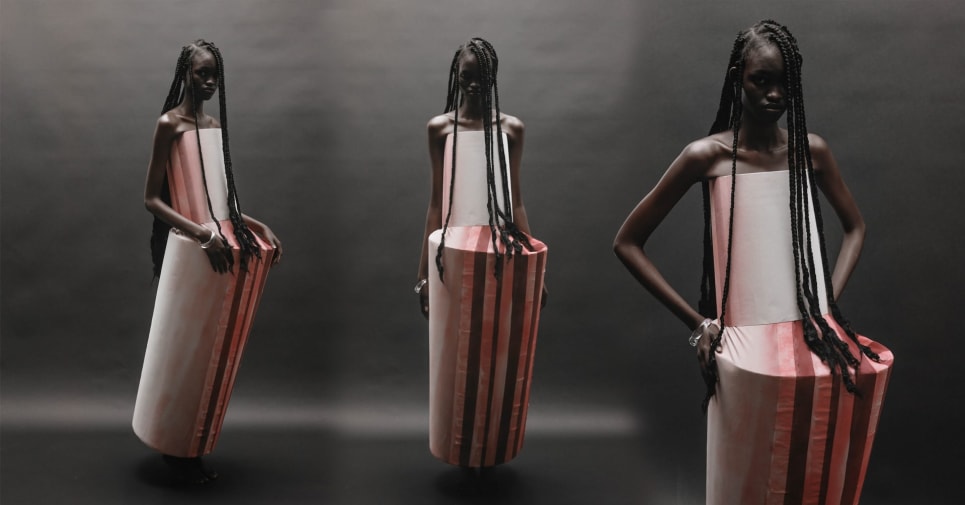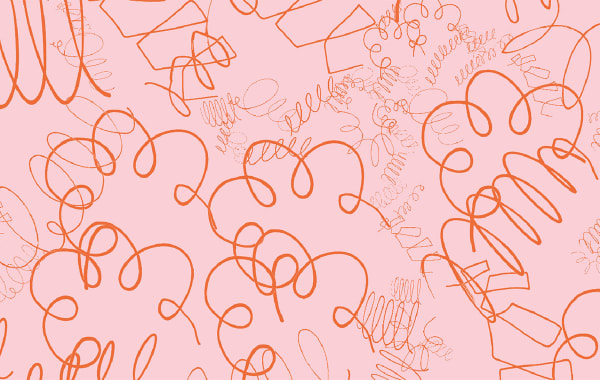On Central Saint Martins: URL you'll find Thank you for the invitation, a collection of graduating students who open up their work to the viewer. Here, the curator of the collection and alum of MA Arts and Cultural Enterprise, Haja Fanta shares a selection.
The nature of sharing your artwork inherently puts you in a vulnerable position. You are placing your ideas and thoughts in the hands of another with the hopes of them understanding what you intended this exchange to be. What brings this selection of works together is the careful depiction of vulnerability and how the artist delicately and intimately invites the audience to investigate topics that are near to them. This collection spans across different courses and topics such as racism, identity, feminism and more.
Ela O’Loughlin, Jiaqi Mao, and Olivia Kelly all use space as a mode of expression and communication to uncover their ideas. Olivia Kelly directly transports us to her childhood home skilfully using miniature objects built by hand, to bring together her fragmented memories of home and belonging. Through the dissection of her grandma’s home Jiaqi Mao breakdowns the topics of the different relationships we encounter in life and women’s power. Ela O’Loughlin drifts between both physical and digital spaces to explore the sliding nature of being.
Wendelle Allado and Nadirah Dankwa use personal experiences to voice their thoughts surrounding race and identity. Nadirah Dankwa shares her family’s acceptance of their hair through life-sized dolls representing black bodies and black beauty. Wendelle Allado’s pieces show an exposed heart and are paired with three women who share their personal experiences of navigating racism.
The process of reflection requires a level of comfortability which is shown in Katie Saunder’s film ‘You Don’t See Me’. Through conversation the characters touch on the process of ageing, challenging gender stereotypes and the healing power of performance. Vulnerability and bravery go hand in hand, this balance is reflected through space, performance and craftsmanship.

Poppy Poulter, BA Fashion: Fashion Design Womenswear
"I am interested in the worlds of dreams and sleep; the way that they live in parallel to our lives. Dreams for me have been a method of working though anxieties, ideas and fantasies all my life. They are as important as reality.
This was the starting point for my collection research. An image that encapsulated these feeling's for me, was the image of Man Ray’s Mannequin. The simplicity of the mannequin, hardly clothed, expressed the vulnerability of dreaming and how exposed we can be in our dreams. Although this also could be reminiscent of a nightmare, the anxiety dream where you are standing, naked, clothes around your ankles, on a stage. The hoop around her legs felt restrictive, and in my dreams, I seem to always be pulled back by something, you know that you have a goal, but you can’t quite reach it, or you are running, but your legs won’t move fast enough.
I liked this idea, That the limitations of the body are a reminder that you are in a surreal space. This influenced by material choices of paper, alongside a wish to align with the Surrealists’ ideals of using found objects. By fusing the fabric to papers and cards I was manipulating the fabric and changing the quality to allow the rigid hoop to hold in one place but seamlessly transform into a tight fabric elsewhere, behaving normally. This together with the use of glass reflected the feeling of where things do not work as they should, are not what you first expect them to be."
You Don't See Me
Katie Saunders
Katie Saunders, BA Fine Art
"You Don’t See Me emerged from my research into the themes of voyeurism, the grotesque and identity. The starting point for the narrative was influenced by the recording Split Britches produced by Alia Cassam featuring Peggy Shaw and Lois Weaver. They are partners and collaborators who became pioneering feminist, queer performance artists in New York. They are now in their 70s and continue to challenge gender stereotypes and the visibility of different types of femininity. The recording is a conversation between them, which takes place in an imaginary dressing room as they ponder over their reflections in the mirror. They beautifully describe the process of ageing, the gestures learned from black and white movies and the healing power of performance.
I imagined this dark and atmospheric dressing room, where the character was in the process of transformation before a performance."
-
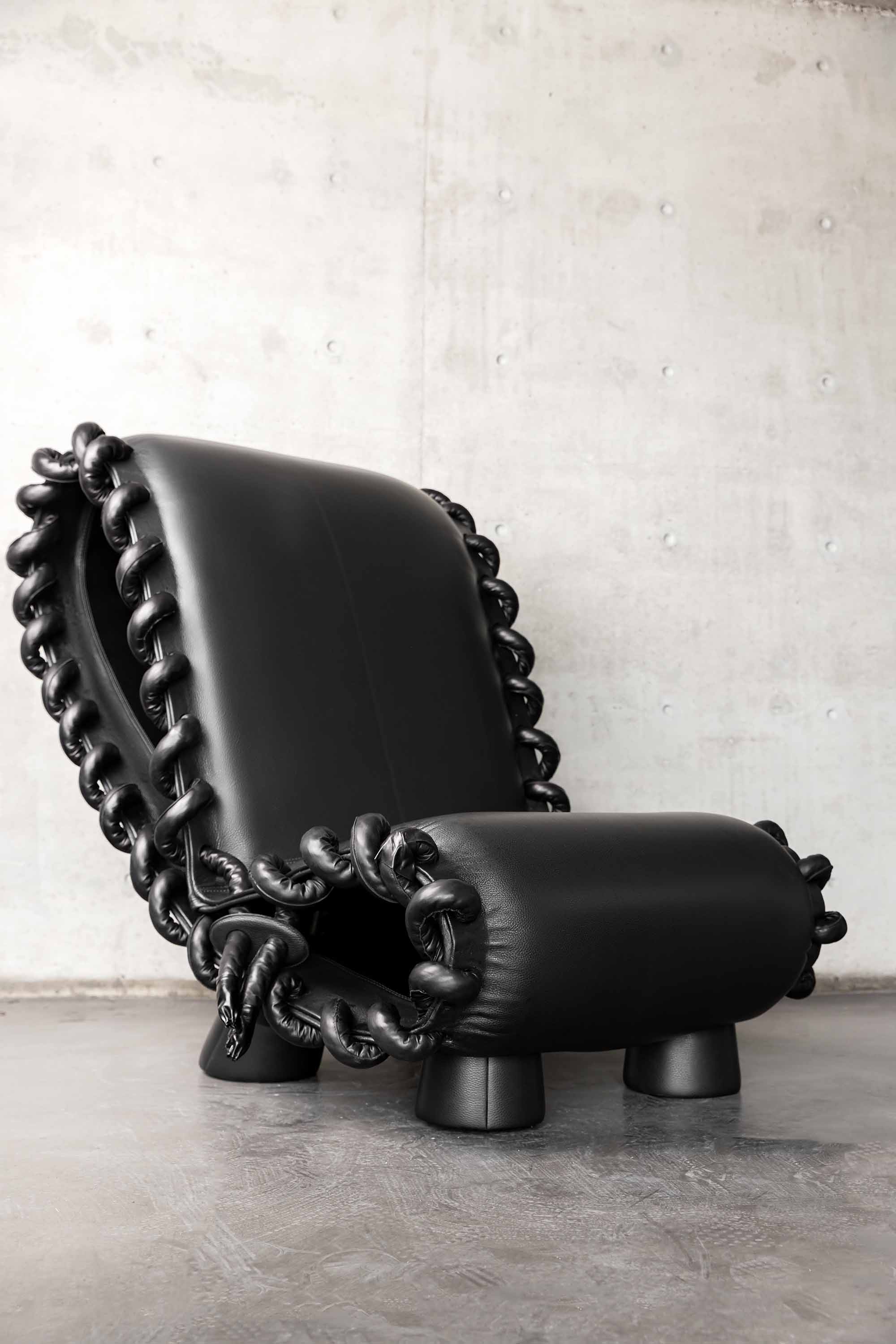
Nareg Krikorian, MA Design (Furniture)
-
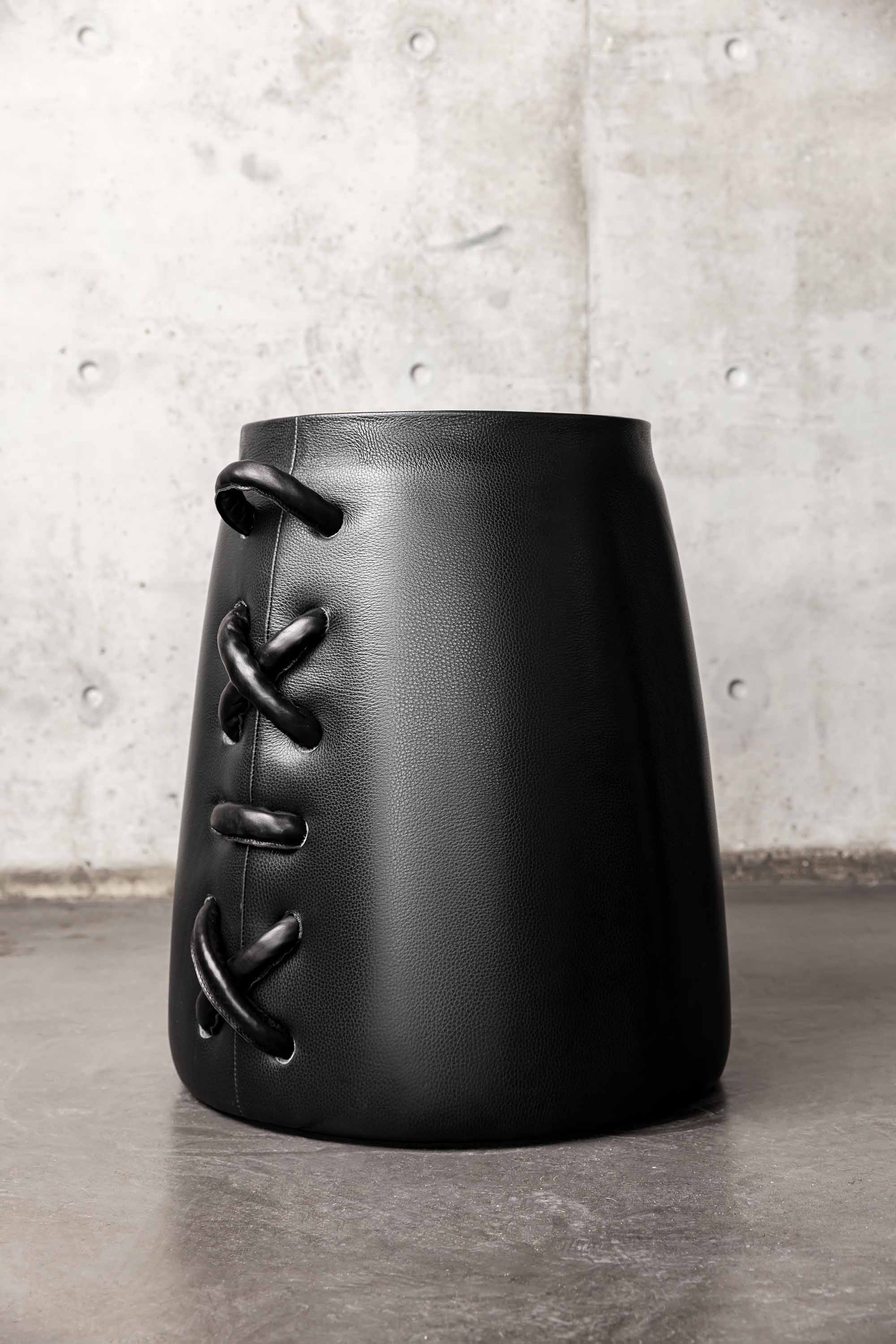
Nareg Krikorian, MA Design (Furniture)
-
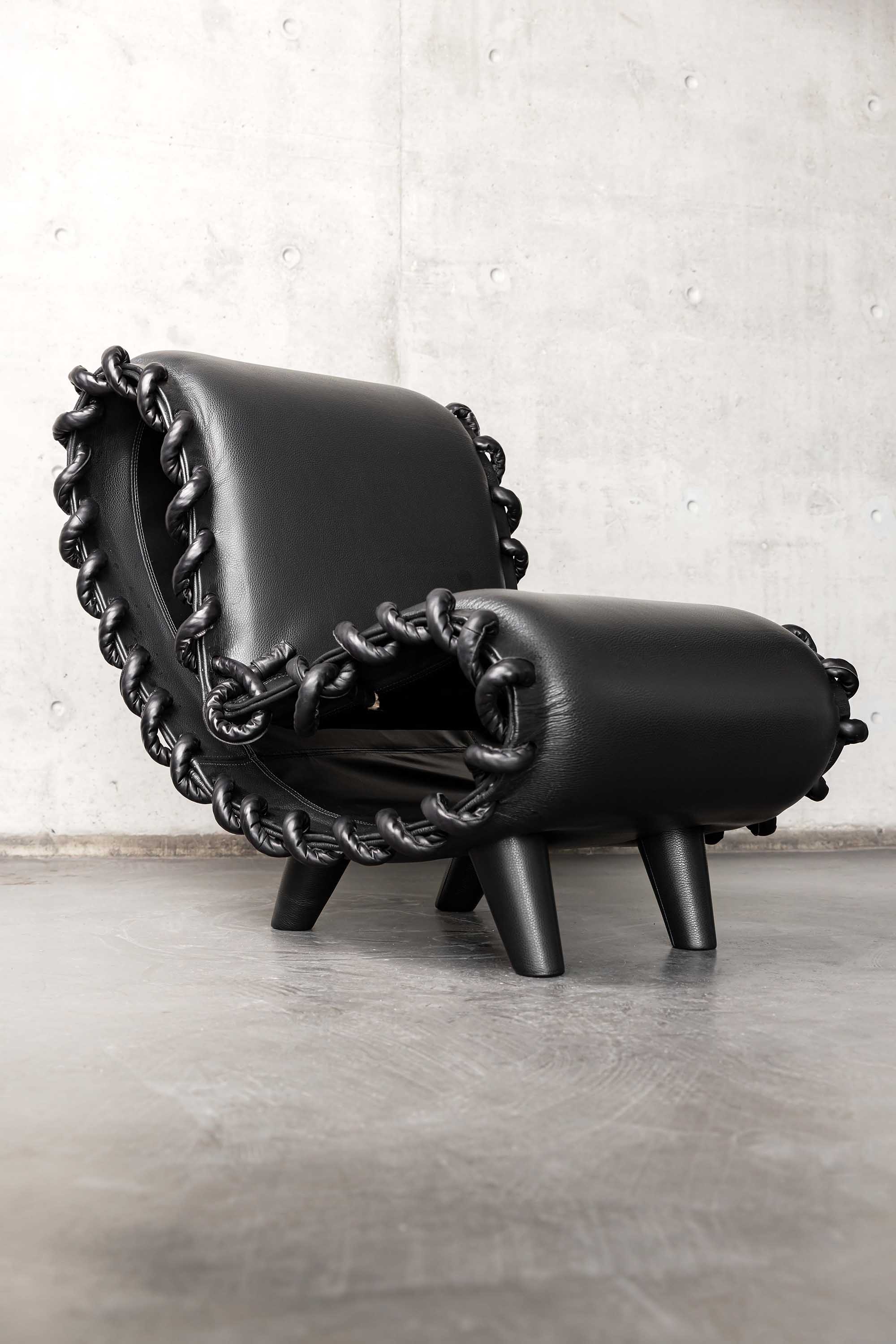
Nareg Krikorian, MA Design (Furniture)
Nareg Krikorian, MA Design (Furniture)
Through exaggerating common leather-craft techniques, Nareg explores cultural, material, and inherited translations of craft and objects through a personal and romanticised lens. His bold take on mundane processes aims to insert a fresh sense of bewilderment in the tinier and deeper elements of craft. The collection embodies a meticulous process of manufacturing, respecting the traditional ways but also developing them to fit the concept, narrative and context.

Ela O'Loughlin, BA Fine Art
"My work encompasses the nature of solitude, the moments of aloneness dotted within life, where we retreat into ourselves and commune with the within. I explore this sensation through visual metaphor, understanding the mind and perception through artificial intelligence, technology, domestic spaces and the human form.
To me, AI creates a dynamic conversation between artist and machine, in my works I’ve used an AI called ‘neural blender’ to develop images from subjective descriptions of my own photographs, forming a sort of collaboration. I compare the human way of understanding to that of AI generated images, the dreamlike, undefined visuals are almost parallel to memory in my practice.
Combining the elements of human form, domesticity, technology and my AI collaborations I create works that become visual pockets of stillness and contemplation, designed to present a movement of consciousness from the shell in which we live."
Explore the entire Thank you for the invitation collection.
Haja Fanta is a London-based curator and alum of MA Arts and Cultural Enterprise.

